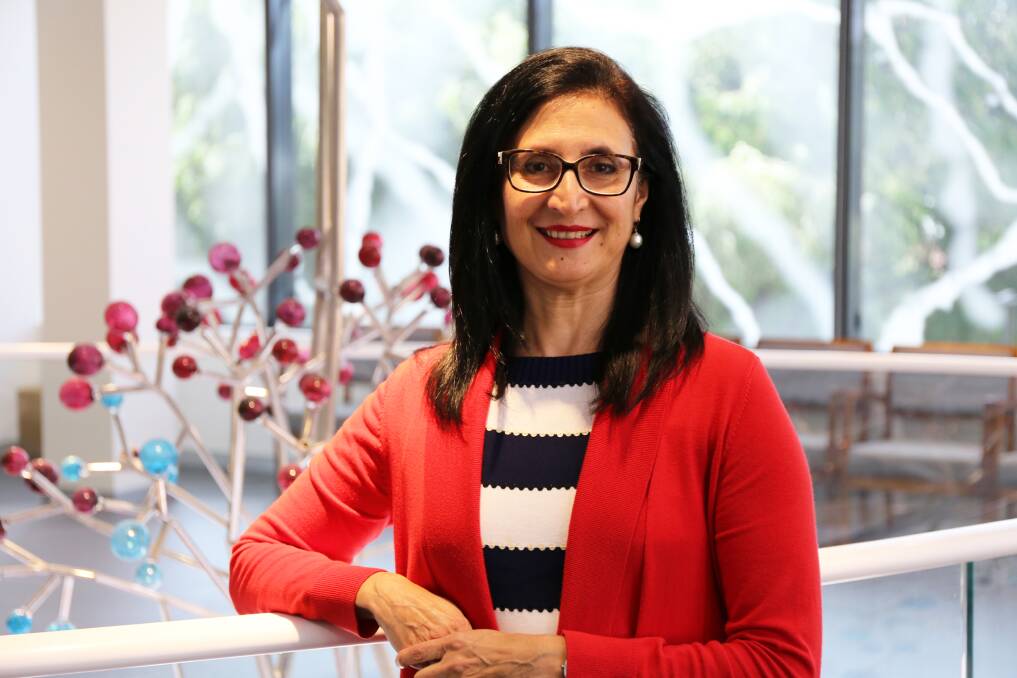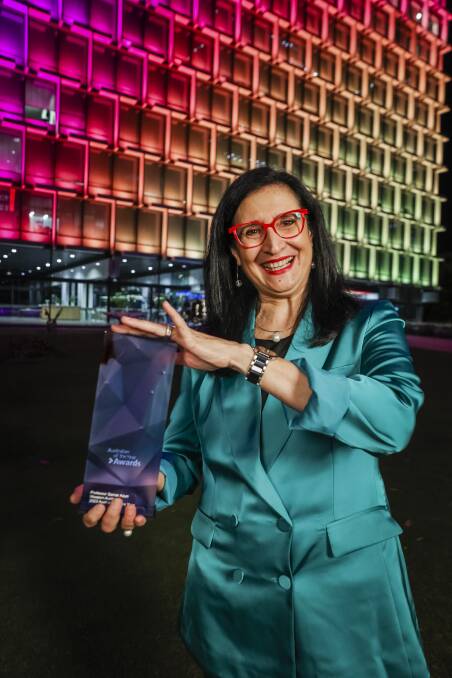
Death is one of the hardest things we have to talk about. Whether it's someone who's received a diagnosis, or a grieving family member, it can be difficult to find the right words.
Create a free account to read this article
$0/
(min cost $0)
or signup to continue reading
Professor Samar Aoun is looking to change that, and her efforts have put her in line for Australian Of The Year.
"Death is 100 per cent prevalent, we all going to go through it. It's part of life. But it doesn't mean that if you talk about it, it's going to kill you."
Her passion lies in her Bunbury community, where she co-founded the South West Compassionate Communities Network, an organisation which is pioneering a new approach to end of life care in regional WA.
Talking about death
Instead of focusing palliative care on the 5 per cent of time spent with clinicians, Professor Aoun is looking to the other 95 per cent, spent with family, friends and around the community.
SWCCN does this by pairing families with others who have gone through a similar experience of losing a loved one. It's all about increasing what she calls "Death literacy".
"Death literacy is to know what the processes are for dying and death, and how they should all be prepared for end of life. This is about really telling your family, your loved ones, your choices and your wishes, so that you can die according to them," she said.
"The idea is to bring back the families who are feeling socially isolated because of life limiting illness, or because they have no one, to be more socially connected with our community."
They have branched this approach out into the wider Bunbury community as well, through 'death cafes' - monthly events where dying people can get together with strangers and talk about death. Sounds morbid, but the idea is straightforward.
If people can be more comfortable talking about death, it makes the experience of someone with a terminal diagnosis much easier.
"Not only do you get benefits yourself, by having informal social networks around you helping you, you're really doing a favor for your community as well, because you're building up their skills," Professor Aoun said.
"They need to practice on someone, right?"
It's led to the City of Bunbury taking on a Compassionate Community Charter. Through conversations with people in the community, they hope to build a toolkit which will help individuals, clubs and businesses to better support those living with terminal illness.
Submissions will open up for a second time in February, and Professor Aoun invites everyone to add their two cents to the Charter.
Out of hospital and into the community
Professor Aoun said yet to be published research out of the program is promising, showing participants spend less time in hospital, and when they do go to hospital, their stay is shorter.
A big reason is that half of her participants live alone. In fact, Bunbury has the highest percentage of people living alone in regional Australia. Professor Aoun's Connectors Program means they have someone with personal experience to lean on.
Dying people don't need to be in hospital.
- Professor Samar Aoun
"When you're alone, and you've got a terminal illness, anything freaks you out, and you tend to go straight to the hospital. But if you have a connector visiting, you're more comforted and you're less likely to rush to the hospital straight away."
Bunbury has served as a testing ground for these concepts. With regional hospitals experiencing crippling staff shortages, any patient they don't have to see represents another patient they can. Professor Aoun said this outcome alone makes the program worth expanding to other regions of the state.
"Dying people don't need to be in hospital. This is not the place for people who are dying."
"Death is a social event with a medical component, not a medical event with a social component. Unfortunately, in the last few years, this has become too professionalised to medicalised."
"We tend to overestimate the importance of professional support, and underestimate what family, friends, and neighbors can provide."
"The loveliest people"
Professor Aoun's work in palliative care led her to the Motor Neurone Disease Association of WA. There are about 200 people living with MND in WA, and out of all of the people she's worked with - most of which are either dying or close to someone who is - she said these cases are the hardest emotionally.
"They're doing the right thing in their life, quite a few sporty people get it. They get a death sentence for nothing they've done wrong in their life, or nothing that is under their control. That really grabbed my heart."
"These people need palliative care, right from the time of diagnosis, because they're living with dying, they know they're dying, there's no cure, there's no treatment. Yet palliative care is not kicking in."

It's with these patients, she said, that the family based care approach is most important. MND patients eventually lose all mobility, to the point where all they have control of is where their eyes point. Yet, Professor Aoun draws inspiration from the way they handle the inevitable.
"The people with MND are the loveliest people that I have ever met. They're so positive, and resilient, they take everything on the chin, it's just unbelievable."
A high honour
Professor Aoun has received numerous awards for her work over the years. The biggest so far came when she was awarded WA Australian of the Year in November.
"With all the publicity and the platform that's created, people now are really talking more about this, and looking at their loved ones with terminal illness in a different way. So it's made some difference," she said.
Even with her list of accolades, being named as a finalist for Australian of the Year 2023 was a surprise.
"I try to forget about it, because it's just quite overwhelming. I suppose I'll deal with it on the day, if it happens."
She's up against some stiff competition. Pioneers in their fields, from farming, medicine, music and humanitarianism. She said whatever happens won't change the work she's doing. Although she hopes it will encourage more people to volunteer.
"We only die once, so let's make it a good one."

